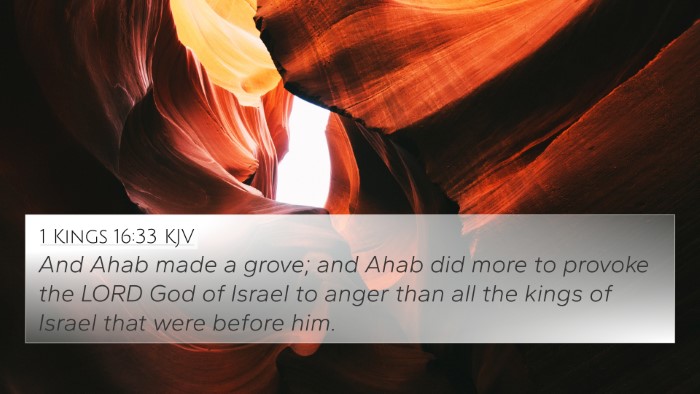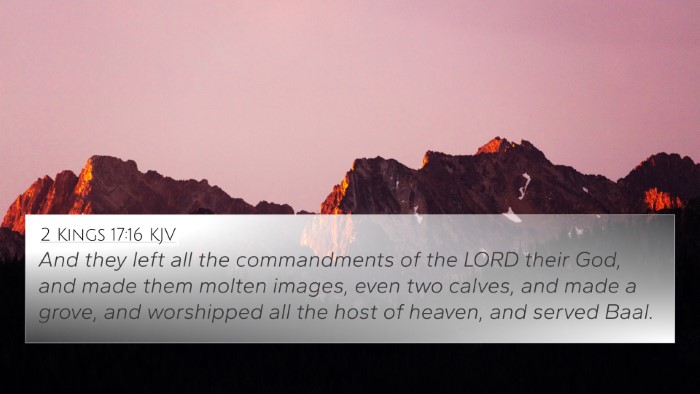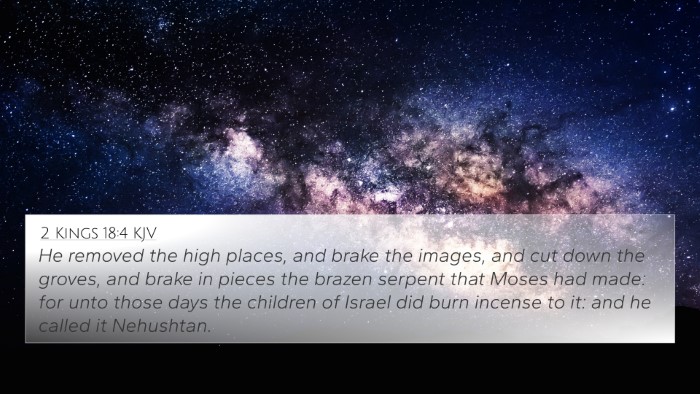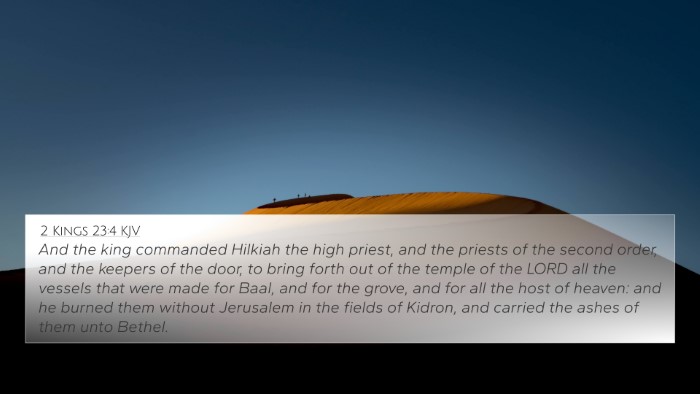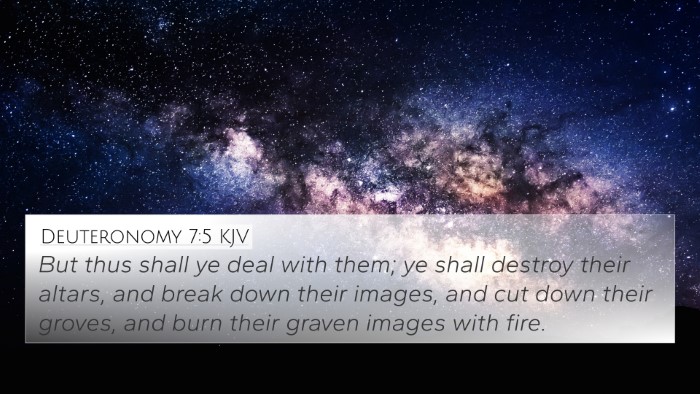Understanding 2 Kings 13:6
Verse: 2 Kings 13:6 states, "Nevertheless they did not turn away from the sins of the house of Jeroboam, who made Israel sin, but walked in them; and the Asherah also remained in Samaria."
Summary of Verse Meaning
This verse highlights the persistent disobedience of the Israelites, specifically in relation to the idolatrous practices established by Jeroboam. Despite God's judgments and the negative effects of their sins, the people had not repented and continued to stray from the covenant relationship expected from them.
Insights from Public Domain Commentaries
-
Matthew Henry:
Henry emphasizes that this passage illustrates the obstinacy of the Israelites in their idolatry. The practice of worshiping the Asherah, a Canaanite goddess, shows that rather than turning to God, they chose to maintain their sinful ways. Henry notes the consequences of such rebellion against divine authority.
-
Albert Barnes:
Barnes observes that 'the house of Jeroboam' refers to the dynasty responsible for leading Israel into sin. The refusal to abandon these sinful paths demonstrates a failure to heed God's warnings and a complete disregard for His commandments, which led to dire consequences for the nation.
-
Adam Clarke:
Clarke comments on the cultural significance of the Asherah in Israel. They not only persisted in worshiping idolatrous figures but did so after experiencing divine chastisement, which signifies a deep-seated rebellion against God's sovereignty and moral law.
Bible Cross-References
To further understand 2 Kings 13:6, it is insightful to examine these related scriptures:
- 1 Kings 12:28-33: Illustrates Jeroboam's establishment of idolatry.
- 2 Kings 17:22-23: Chronicles the ongoing sinfulness of Israel leading to exile.
- Deuteronomy 12:29-31: Warns against the practices of other nations.
- Isaiah 1:4: Describes Israel's sinful nature and rebellion against God.
- Hosea 4:1-2: Appeals to Israel’s systemic sins, including idolatry.
- Jeremiah 7:18: Discusses the persistent idolatry and its consequences.
- Micah 6:16: Critiques the wayward actions of Israel’s leaders and people.
Thematic Bible Verse Connections
2 Kings 13:6 connects with several themes across the Old and New Testaments. The recurring narrative of idolatry, disobedience, and divine retribution spans various books of the Bible, providing a rich tapestry of inter-Biblical dialogue. The following keywords and themes can be drawn out:
- Covenant Breaking: Highlighted in various prophetic books as Israel frequently reneged on God’s promises.
- Idolatry and Its Consequences: Explored throughout scriptures such as Exodus, Psalms, and the Prophets.
- God’s Mercy vs. Judgment: A theme that is often present in the letters of Paul and the Revelation.
Tools for Bible Cross-Referencing
Understanding the connections between these verses can be enhanced through:
- Using a Bible concordance to find similar terms and concepts across scriptures.
- Employing a cross-reference Bible study guide to explore related texts.
- Utilizing Bible reference resources for deeper thematic analysis.
User Intent: Finding Cross-References
For those looking to deepen their understanding, consider questions such as:
- What verses are related to 2 Kings 13:6?
- How do 2 Kings 13:6 and Jeremiah 7:18 connect?
- What Bible verses support the themes of disobedience and idolatry outlined in this verse?
Conclusion
In summary, 2 Kings 13:6 serves as a critical reminder of Israel's spiritual state and invites readers to reflect on the importance of fidelity to God's commandments. Through careful cross-referencing and thematic examination, one can gain a profound understanding of both the historical context and the spiritual lessons that transcend time.



